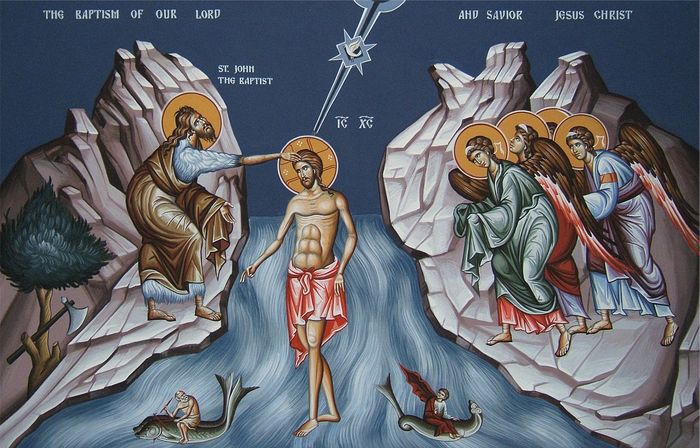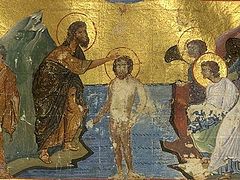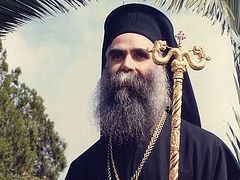For most, the passing of Christmas and New Year’s means the holidays are over. But for Eastern Christians, the season continues with the next, great feast of the liturgical year. Before becoming Orthodox, I’d never heard of Theophany or Epiphany. But this commemoration of Christ’s Baptism in the Jordan is big. Here are some reasons why.
First, it marks the baptism of Christ! And that’s important not because he’s a VIP, but because he’s the one person we’d expect never to need baptizing. John even tries to prevent him. It makes no sense for the sinless one to undergo a ritual whose purpose is remission of sins.
Is Jesus’ insistence merely a formality signifying his preparation for ministry? Greater things are in play.
One is the depth of God’s embrace of humanity, shown when Creator allows creature to lay hands on him. Another is something not all Christians may accept: that in submitting, Christ validates a ritual as meaningful.
His baptism shows faith isn’t simply the thinking or feeling of a thing. It becomes incarnate in doing, as Jesus does at Jordan to fulfill righteousness. There’s a role in life for appointed rites and works — not to earn salvation, but to show obedience to, and the obedience of, Christ.
Theophany is also the first time all three persons of the Trinity are revealed: the Son in the water, the Father speaking from Heaven and the Spirit resting on Him. This feast makes the Trinity manifest.
According to Moses, someone’s testimony was believed on account of two or three witnesses. The Law is fulfilled when Jesus doesn’t testify to Himself as Messiah, alone. The Father witnesses and the Spirit confirms. On the strength of these, He is verified as Son.
Theophany is also a festival of lights. Anthropologists note that such festivals in the midst of winter darkness are common to cultures around the world. For them, this shows there’s little unique to Christianity. But to Orthodox eyes, these festivals anticipate Christ — who prepared the way for the Gospel by planting in them seeds of Himself.
Theophany is that primal festival, because Christ is the light shining in darkness. He’s the light burning in the menorah as Jerusalem lay besieged, its small supply of oil prefiguring the Anointed One.
Lastly, Theophany offers our home and homes to God. We enact its cosmic scope by going to a river at the end of services and calling down the Spirit to rest on its waters, restoring them to the waters of Paradise.
The world is our home. We ask God to heal it. Then, we ask him to come to our little dwellings upon his earth, and abide with us and our families. The final act of Theophany is the blessing of homes with holy water from the feast.
I never heard of Theophany before becoming Orthodox. But it’s among the most ancient Christian holidays. And I celebrate it now with joy.





